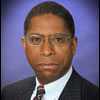01 Dec 2011 Simple, Complex Community Service Suggestions for Black Churches, by B.B. Robinson, Ph.D.
 In tough economic times, such as those Americans are currently experiencing, there are some ways that black churches can perform services that could help parishioners weather financial crises more effectively.
In tough economic times, such as those Americans are currently experiencing, there are some ways that black churches can perform services that could help parishioners weather financial crises more effectively.
For instance, a church might be able to reduce the cost of food staples considerably.
Using today’s technology, churches can provide a wholesaler’s catalog of products — taking orders and payments for a wide range of food and other products across its congregation.
On an economies-of-scale basis, a church can make bulk orders of certain goods from wholesalers and pass them on to congregants at cost.
Volunteers can receive delivery of these goods and distribute them without the usual grocery store mark-up. Church, meet Costco!
According to 2009 U.S. Census Bureau data on annual retail sales, as collected by their Annual Retail Trade Survey, the retail margin (which is calculated as sales less purchases and inventories) for grocery stores was 21.6 percent. Therefore, a congregation could expect to incur about this much in saving.
Imagine, saving over 20 percent on one’s food budget – and not having to buy in bulk.
Accordingly, members might enter their orders on Sunday and return the next Saturday for pickup. Just show up at the church meeting hall with an empty trunk or cart.
This is a very simple technique that church leaders might try that could help members stretch their dollars.
A second, but a much more complex undertaking, that black churches might seek to provide for members is church-sponsored unemployment insurance.
Many churches already provide burial insurance. They collect premiums and distribute a lump-sum payment to parishioners when a death occurs.
In the case of unemployment insurance, an unemployment insurance package can be designed that allows members to pay premiums while they work, and then receive lump-sum or periodic payouts when they become unemployed.
No-trade margin food distribution can logically be performed on a church-by-church basis as long as church membership is large enough since wholesalers have a minimum order amount.
Unemployment insurance programs, however, would be much better and safer if they were developed by nationwide denominations so that they will have a broad financial base against which to spread risk. They can benefit from the fact that upturns and downturns in the economic cycle can be different for different regions of the nation.
These are only two functions that today’s black church can seek to perform to help congregations economically — particularly during difficult times.
By so doing, the church teaches entrepreneurship and makes itself more relevant and useful to a population that is increasingly looking elsewhere for help.
# # #
B.B. Robinson, Ph.D., is a member of the national advisory council of the black leadership network Project 21. You can visit his website at www.blackeconomics.org. Comments may be sent to [email protected].
Published by the National Center for Public Policy Research. Reprints permitted provided source is credited. New Visions Commentaries reflect the views of their author, and not necessarily those of Project 21, other Project 21 members, or the National Center for Public Policy Research, its board or staff.



